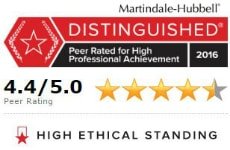For a prosecutor to use evidence gathered as a result of a traffic stop against you, the police officer must have reasonable, clearly defined suspicions of a traffic infraction or criminal activity.
In this case my client was driving his friend home from a bar and was pulled over by a police officer. My client was upset because he did not believe that he had done anything wrong. The police officer’s report indicated that my client was all over the road, crossing the center line and fog line, and that was the basis for the traffic stop. Luckily, in this instance there was a cruiser video that captured my client’s operation of the vehicle. After watching the video I could not find the poor operation that the officer described in his report.
After a full hearing the judge agreed with us that there was no good reason for stopping my client’s vehicle and suppressed all of the evidence gathered as a result of the traffic stop. This resulted in the case being dismissed.
The lesson here is to make sure that electronic evidence is preserved for use in your case. Don’t rely on the police or prosecutor to do this for you. Many storage systems will record over this information after a certain period of time and it will be lost forever. An experienced lawyer will send a letter to anyone who may have electronic evidence in your case, asking them to take steps to preserve this material. If these steps are not taken and the evidence is lost, you will have little if any no recourse in court later. It is also important that you meet with a lawyer right away; time if of the essence with these requests.
Disclaimer: This article is intended to provide general, not specific, information about Maine law. The publication of this article does not constitute an attorney-client relationship between the author(s) and the reader(s).





